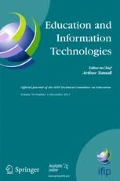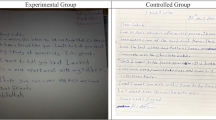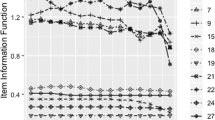Abstract
The advent of Information Communications Technology has revolutionized ESL writing instruction. This quasi-experiment investigated the correlations of self-perception in reading, self-perception in writing, reading performance and writing performance of two groups of freshman college students representing two learning conditions — the experimental group (38) exposed to Web-mediated Instruction and the control group (38) taught using the Conventional Method. Researcher-made reading test, self-perception in reading and self-perception in writing inventory validated by language experts, and writing prompt for informative essay were administered to both groups of students before and after the treatment period which ran for 13 weeks. Partial least squares structural equation modeling was used to examine the correlations among variables and ANCOVA was used to determine the effect of web-mediated and conventional writing instruction on students’ writing performance. Results of independent t-test show that there is a significant difference in the pre-test and posttest writing scores of both experimental and control groups. However, there is no significant difference between the reading and writing performance of experimental group and control group at p < 0.05) based on ANCOVA results. Therefore, web-mediated writing instruction via weblogs and conventional writing instruction are equally effective in enhancing students’ writing performance. As regards, correlations of variables tested in this study, for experimental group, reading performance positively significantly affects writing performance. Both self-perception in reading and self-perception in writing insignificantly affect writing performance. Reading performance is insignificantly correlated with self-perception in reading. For control group, self-perception in reading and reading performance positively significantly affect the control group’s writing performance. Reading performance is insignificantly correlated with self-perception in reading and self-perception in writing. In both groups, self-perception in reading is positively correlated with self-perception in writing. Hence, educators should develop students’ positive attitude towards reading to effect positive attitude towards their writing. As what research shows, positive self-concept in writing will more likely result in improvement of writing skills.
Similar content being viewed by others
References
Alsamadani, H. (2018). The effectiveness of using online blogging for students’ individual and group writing. International Education Studies, 11(1), 44–51.
Anderson, D. (2010). The effect of blogging and electronic journaling on writing skills development in high school freshmen. Doctoral Dissertation: Walden University.
Arici, A., & Kaldirim, A. (2015). The effect of the process-based writing approach on writing success and anxiety of pre-service teachers. The Anthropologist., 22, 318–327. https://doi.org/10.1080/09720073.2015.11891883.
Armstrong, K., & Retterer, O. (2008). Blogging as L2 writing: A case study. AACE Journal, 16(3), 233–251.
Badger, R. & White, G. (2000). A process genre approach to teaching writing. ELT Journal, 54 (2), 153–160. https://doi.org/10.1093/elt/54.2.153
Bandura, A. (1997). Self-efficacy: The exercise of control. New York: W. H. Freeman and Company.
Bernstein, M. (2004). Do weblogs improve writing? http://markbernstein.org/Jan0401.html#note_35302. Accessed 20 January 2018.
Blood, M. (2002). Blogging in the classroom: A preliminary exploration of student attitudes and impact on comprehension. Journal of Educational Multimedia and Hypermedia, 17(1), 99–122.
Brummitt-Yalel J. (2011). Relationship between reading and writing. http://www.k12reader.com/the-relationshipbetween-reading-and-writing. Accessed 15 February 2018.
Cambridge Centre Sixth-Form Studies (2017). Teaching methods: Traditional vs modern. https://www.ccss.co.uk/news/traditional-vs-modern-Teaching. Accessed 15 February 2018.
Cequeña, M. B., Barrot, J., Gabinete, K., Barrios, A., & Bolaños, E. (2013). Investigating the relationship between college students’ self-perception and actual performance in Reading and in writing. Philippine ESL Journal, 11, 115–137.
Cohen, J. (1988). Statistical power analysis for the behavioral sciences. (2nd ed.). Hillsdale, NJ: Erlbaum.
Colorin Colorado, n.d. Reading comprehension skills for English language learners. http://www.colorincolorado.org/article/reading-comprehension-skills-english-language-learners. Accessed 10 April 2019.
Covington, M. V. (1992). Making the grade: A self-worth perspective on motivation and school reform. USA: Cambridge University Press.
De La Paz, S., & Graham, S. (2002). Explicitly teaching strategies, skills, and knowledge: Writing instruction in middle school classrooms. Journal of Educational Psychology, 94, 291–304.
Donovan (2017). How to improve your writing skills. https://www.writingforward.com/better-writing/writing-skills. Donovan 10 April 2019.
Drexler, D., Dawson, K., & Ferdig, R. E. (n.d.). Collaborative blogging as a means to develop elementary expository writing skills. Electronic Journal for the Integration of Technology in Education, 6, 140–160.
Dujsik. K., & Cai, S.(n.d.) Incorporating weblogs into ESL writing classes. http://www.utcc.ac.th/public_content/files/001/31_3-8.pdf. Accessed 18 March 2018.
Fageeh, A. I. (2011). EFL learners‟ use of blogging for developing writing skills and enhancing attitudes towards English learning: An exploratory study. Journal of Language and Literature,2 (1), 32.
Graham, S., Liu, X., Barlett, B., Ng, C., Harris, K., Aitken, A., Barkel, A., Kavanaugh, C. & Talukdar, J. (2017). Reading for Writing: A Meta-Analysis of the Impact Of Reading Interventions on Writing. Review of Educational Research, https://doi.org/10.3102/0034654317746927.
Hay, I., Ashman, A.F. & VanKraayenoord, C.E. (2006). The influence of gender. Academic Educational Psychology, 18(4), 461–470. https://doi.org/10.1080/0144341980180407
Hui-Tzu Min, (2006) The effects of trained peer review on EFL students’ revision types and writing quality. Journal of Second Language Writing 15(2):118-141
Gustilo, L. (2011). Linguistic features that impact essay scores: A corpus linguistic analysis of ESL writing in three proficiency levels. The Southeast Asian Journal of English Language Studies, 17(1), 55–64.
Jones, J. (2003). The tech dude: All about blogging. The Santa Fe New Mexican, p.C-1.
Jones, J. (2006). Blogging and ESL writing: A case study of how students responded to the use of weblogs as a pedagogical tool for the writing process approach in a community college ESL writing class. Doctoral Dissertation: University of Texas, Austen, USA.
Kelley, M. J. (2008). The impact of weblogs on the affective states and academic writing of L2 undergraduates. Doctoral Dissertation: University of Virginia.
Khan, B. (1997). Web-based instruction (WBI): What is it and why is it? Badrul H. Khan (Ed.) web-based instruction. Educational technology publications, Inc.: Englewood cliffs, NJ.
Klassen, R. (2002). Writing in early adolescence: A review of the role of self-efficacy beliefs. Educational Psychology Review, 14(2), 173–203.
Koons, H. H. (2008). The reading-writing connection: An investigation of the relationship between reading ability and writing quality across multiple grades and three writing discourse modes. University of North Carolina: Unpublished doctoral dissertation.
Langan, J. (2005). College writing skills. 6th ed. NY,USA: McGraw-Hill International.
Lee, L. (2010). Fostering reflective writing and interactive exchange through blogging in an advanced language course. Recall, 22(2), 212–227. https://doi.org/10.1017/S095834401000008X.
Lin, M. H., Li, J. J., Hung, P. Y., & Huang, H. W. (2014). Blogging a journal: Changing students’ writing skills and perceptions. ELT Journal, 68(4), 422–431. https://doi.org/10.1093/elt/ccu032.
Mabuan, R. A. (2018). Using blogs in teaching tertiary ESL writing. English Review: Journal of English Education, 6(2), 1–10. https://doi.org/10.25134/erjee.v6i2.1238.
Madalina-Steliana, L. (2010). Fostering reflective writing and interactive exchange through blogging in an advanced language course. European Association for Computer-Assisted Language Learning, 22(2), 212–227.
Marsh, H., Smith, I., & Barnes, J. (1984). Multidimensional self-concepts: Relationships with inferred self-concepts and academic achievement. Australian Journal of Psychology, 36(3), 367–386.
Matthewson, G. C. (2000). In Rudell, Robert B., Martha Rapp Ruddell, and Harry singer. 2000. Theoretical models and process of reading (4th ed.). USA: International Reading Association.
Mayo, L. (2000). Making the connection: Reading and writing together. The English Journal, 89(4), 74–77.
McLaughlin, B. (1990). “Conscious” versus “unconscious” learning. TESOL Quarterly, 24(4), 617–634.
Mehlenbacher, B., Miller, C.R., Covington, D., & Larsen, J.S. (2000). Active and interactive learning online: A comparison of web-based and conventional writing classes. IEEE, 43(2),166 – 184. https://doi.org/10.1109/47.843644
Miftah, M. Z. (2015). Enhancing writing skill through writing process approach. Journal on English as a Foreign Language, 5(1), 9–24.
Mirshekaran, R., Namaziandost, E. & Nazari, M. (2018). The effects of topic interest and L2 proficiency on writing skill among Iranian EFL learners. Journal of Language Teaching and Research, 9(6),1270-1276. https://doi.org/10.17507/jltr.0906.16
Myles, J. (2002). Second language writing and research: The writing process and error analysis in student texts. TESL-EJ, 2, 1-20.
National Council of Teachers of English. (2004). On Reading, Learning to Read, and Effective Reading Instruction: An Overview of What We Know and How We Know It. http://www2.ncte.org/statement/onreading. Accessed 15 December 2017.
Noytim, U. (2010). Weblogs enhancing EFL students’ English language learning. Procedia, Social and Behavioral Sciences, 2(2), 1127–1132.
Ozdimir, E. & Aydin, S. (2015). The effects of blogging on EFL writing achievement. Procedia-social and behavioral Sciences. https://doi.org/10.1016/j.sbspro.2015.07.521.
Pajares, F. (1996). Self-efficacy beliefs in academic settings. Review of Educational Research, 66(4), 543–578.
Relan, A., & Gillani, B. J. (1997). Web-based instruction and the traditional classroom: Similarities and differences. In B. Khan (Ed.), Web-based instruction (pp. 25–37). New Jersey: Educational Technology Publications.
Rider, N., & Colmar, S. (2006). Reading achievement and reading self-concept in year 3 students. In P. L. Jeffery (Ed.), AARE 2005 International Education Research Conference. Creative dissent: Constructive solutions. Melbourne: AARE.
Roth, N. (2007). To blog or not to blog? A comparative study of the effects of blogging in the teaching of writing in the high school classroom. Ph.D. dissertation: Duquesne University.
Ruddell, R.B. & Unrau, N.J. (2004). Theoretical models and processes of reading. Newark, D.E: International Reading Association.
Rumelhart, D. E. (1980). Schemata: The building blocks of cognition. In Attention and performance (pp. 573–603). New York, Hillsdale: Erlbaum.
Sapkota, A. (2012). Developing students’ writing skill through peer and teacher correction: An action research. Journal of NELTA, 17(1–2), 70–82.
Shah, P., Mahmud, W., Din, R., Yusof, A., & Pardi, K. (2011). Self-efficacy in the writing of Malaysian ESL learners. World applied sciences journal 15 (innovation and pedagogy) for lifelong learning, 8–11.
Shaw, E. (2008). The reading and writing self-efficacy beliefs of students with discrepant reading and writing. Unpublished doctoral dissertation, Fordham University. Proquest LLC UMI Microform 33302121.
Smith, M. (2004). Reading next. The Reading-Writing Connection. http://www.lexile.com/m/uploads/positionpapers/ReadingWritingCon nection.pdf. 15 December 2017.
Smith, M. (2007). Writing next. The Reading-Writing Connection. http://www.lexile.com/m/uploads/positionpapers/ReadingWritingConnection.pdf. 15 December 2017.
Smith, M. (n.d.) The Reading-Writing Connection. Retrieved from 15 December 2017 from http://cdn.lexile.com/m/uploads/positionpapers/TheReading-WritingConnection.pdf
Sun, Y., & Chang, Y. (2012). Blogging to learn: Becoming academic writers through collaborative dialogues. Language Learning & Technology, 16(1), 43–61 Retrieved from http://llt.msu.edu/issues/february2012/sunchang.pdf.
Swales, J. M., & Feak, C. B. (2004). Academic writing for graduate students: Essential tasks and skills (2nd ed.). Ann Arbor, MI: The University of Michigan Press.
Trena M. Paulus, (1999) The effect of peer and teacher feedback on student writing. Journal of Second Language Writing 8 (3):265-289
Tse, S. K., Uen, A. K., Loh, E. K., Lam, J. W., & Ng, R. H. (2010). The impact of blogging on Hongkong primary school students’ bilingual reading literacy. Australasian Journal of Educational Technology, 26(2), 164–179.
Ware, P. (2004). Confidence and competition online: ESL student perspectives on web-based discussions in the classroom. Computers and Composition, 21(4), 451–468.
Ware, P. D. (2008). Peer feedback on language form in Telecollaboration. Language learning and Technology,12 (1), 43-63.
Warschauer, M. (2007). Technology and writing. In C. Davison & J. Cummins (Eds.), The international handbook of English language teaching (pp. 907–912). Norwell, MA: Springer.
Yale, J. B. (2011). Relationship between reading and writing. http://www.k12reader.com/the-relationshipbetween-reading-and-writing. 10 December 2017.
Zamel, V. (1983). The composing processes of advanced ESL students: Six case studies. TESOL Quarterly, 17, 165–187.
Zhang, D. (2009). The application of blog in English writing. Journal of Cambridge Studies, 4(1), 62–72.
Author information
Authors and Affiliations
Corresponding author
Additional information
Publisher’s note
Springer Nature remains neutral with regard to jurisdictional claims in published maps and institutional affiliations.
Rights and permissions
About this article
Cite this article
Cequeña, M.B. Correlations of self-perception in reading and in writing, reading and writing performance in web-mediated and conventional writing instruction. Educ Inf Technol 25, 1067–1083 (2020). https://doi.org/10.1007/s10639-019-10002-8
Received:
Accepted:
Published:
Issue Date:
DOI: https://doi.org/10.1007/s10639-019-10002-8




